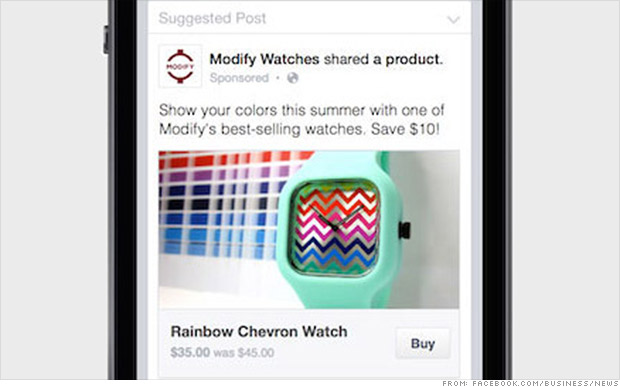The social network thought of a way that helps its users make purchases without leaving the site. The Buy button isn’t much of a surprising move, as many users anticipated it.
Facebook announced on Thursday that it will start testing the Buy button both on desktop and mobile platforms. The businesses that are collaborating with the social network on this project either place the Buy button in Facebook ads or in page posts. Regardless of the chosen method of delivery, the purported goal is quite clear: the social network intends to help its users save time (but not necessarily money), while making sure that they’re not leaving its website. The real goal might be completely different, as this is yet another proof that Facebook turned greedy.

Brian Solis, principal analyst at Altimeter Group, pointed out that “This represents a tremendous opportunity for savvy small businesses to generate sales in real time. This is an opportunity for innovation. This could be so incredibly successful if businesses think about it as a new opportunity.”
Yet another thing that’s not surprising, besides Facebook implementing the Buy button, is the reaction people had when hearing the news. On CNN, Will Fuller commented: “Koooool! I’ll never use it. #guaranteed.” There were others saying that they will never use this feature, and that this thing is something that helps Facebook’s shareholders, and not its users.
One of the main rules of marketing is that a company cannot exist without customers, and seeing people’s attitude towards this social network, I’d say that Facebook’s days are numbered. First, it was teenagers that deleted their accounts, but now grown-ups are starting to have the same reaction. One of the reasons is advertising fatigue, as this company doesn’t know what to do to make news feeds (and important content, in general) as narrow as possible, while making ads wider.
The Buy button’s downsides don’t stop here. Most companies encourage people to visit their websites so that more products (either complementary or unrelated), while the use of the Buy button implies the purchase of a single product. There are plenty of skeptics out there, as far as this new feature is concerned, so it will be interesting to see if it really has a future.
Be social! Follow Walyou on Facebook and Twitter, and read more related stories about how Twitter’s profile redesign made it look more like Facebook, and Facebook’s Trending Topics.










